Over the last 15 years, in Flanders, there has been a more than 40% decline in apple growers. This is part of the Flemish Minister of Agriculture Jo Brouns' answer to Flemish Member of Parliament Roosmarijn Beckers. "It's unfortunate to see the negative evolution we've previously observed in cherry and pear cultivation also occurring in apple cultivation," Minister Beckers says.
"The figures show that Belgium is a net apple export country but that the acreage has been declining for some time. Increased competition, climate change, and geopolitical events, such as the Russian embargo, have put pressure on the sector in recent years," explains Minister Brouns.
"Yet, the sector is adapting in several ways. For example, there's a noticeable diversification toward growing pears. Europe has fewer regions that are climatically favorable to pear than apple growing. Also, the acreage with new, high-quality pear varieties is increasing." See the figures below.
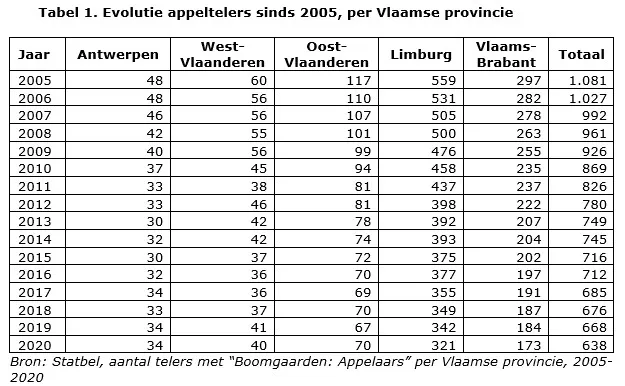
Apple grower evolution since 2005, per Flemish province. Source: Statbel, number of growers with apple orchards per Flemish province, 2005-2020.
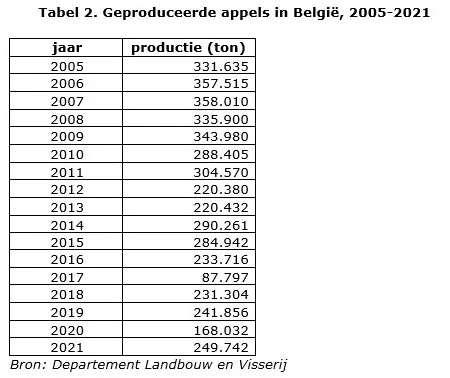
Table 2. Produced apples in Belgium, 2005-2021. Source: Department of Agriculture and Fisheries.
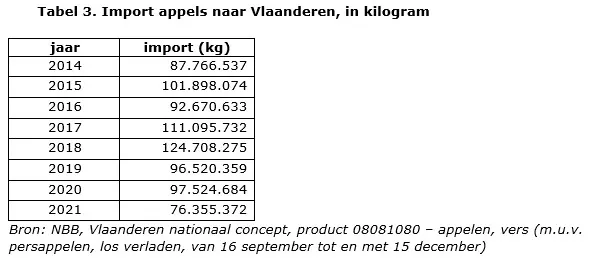
Table 3: Apples imported to Flanders, in kilograms. Source: NBB, Flemish National Concept, product 08081080 - apples, fresh (excluding juicing apples, loose loaded, from September 16 to December 15).
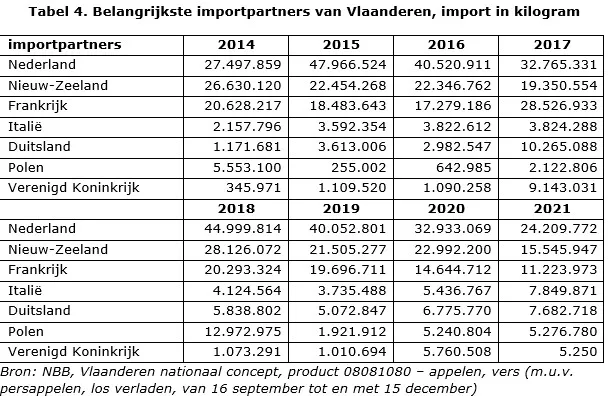
Table 4: Important Flemish import partners, import in kg. From top to bottom: The Netherlands, New Zealand, France, Italy, Germany, Poland, U.K. Source: NBB, Flemish National Concept, product 08081080 - apples, fresh (excluding juicing apples, loose loaded, from September 16 to December 15).
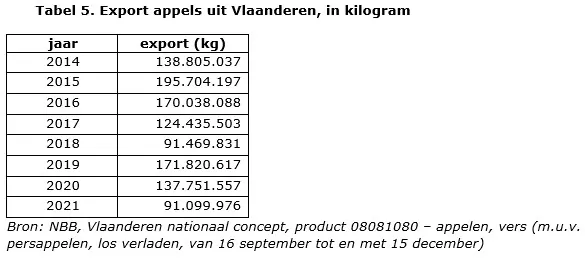
Table 5: Apple exports from Flanders, in kg. Source: NBB, Flemish National Concept, product 08081080 - apples, fresh (excluding juicing apples, loose loaded, from September 16 to December 15).
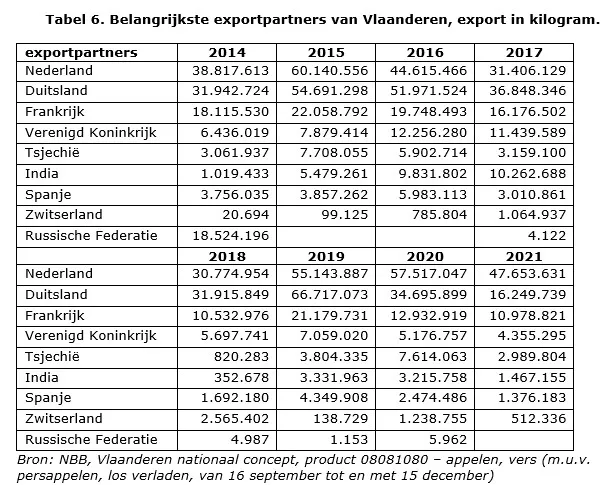
Table 6: Important Flemish export partners, exports in kilograms. Source: NBB, Flemish National Concept, product 08081080 - apples, fresh (excluding juicing apples, loose loaded, from September 16 to December 15).
"It's a pity that our internationally-renowned fruit cultivation is becoming increasingly difficult. Just like our pear and cherry growers, more of our apple growers seem to be giving up," continues Minister Beckers. For the province of Limburg, the decline is almost half.
In 2005, there were still 559 apple growers there; by 2020, there were 321. There are also far fewer growers in other Flemish provinces. In West Flanders, there are 33% fewer apple growers, from 60 to 40, while in Flemish Brabant, there is a 42% decrease (from 297 to 173), says the Vlaams Belang political party.
Minister Brouns mentioned several reasons why the sector has come under pressure in recent years. "He claims apple growers have partly adapted by switching to pear production," says Minister Beckers. "Our fruit growers have, indeed, suffered greatly from the Russian and recently Belarusian economic sanctions. But there are also fewer and fewer pear growers, so his cultivation diversification argument doesn't ring true."
In 2020, Belgium imported some 22,992 tons of apples from New Zealand. "In today's day and age, getting apples from more than 10,000 kilometers away is actually no longer justifiable. I, therefore, encourage everyone to eat more locally-grown apples. That's not only in Flemish apple growers and the economy's interest; it's simply better for the environment too," Minister Beckers concludes.
Source: Vlaams Belang
